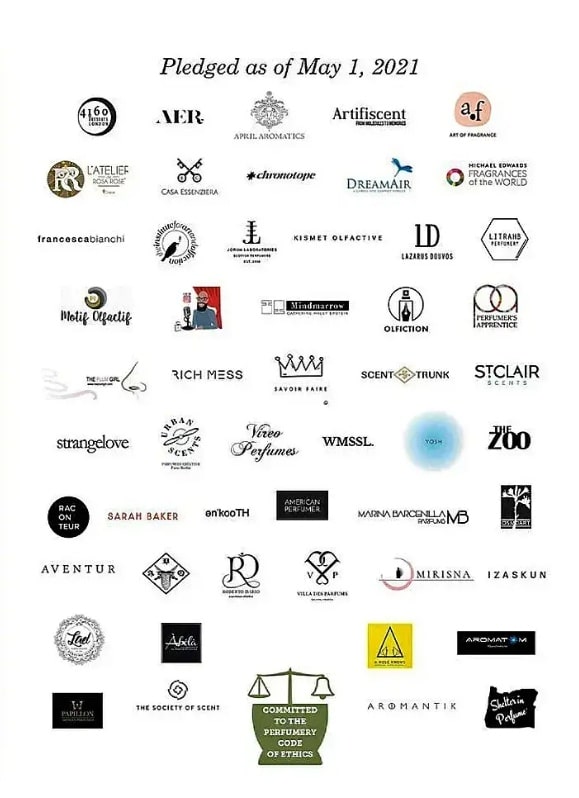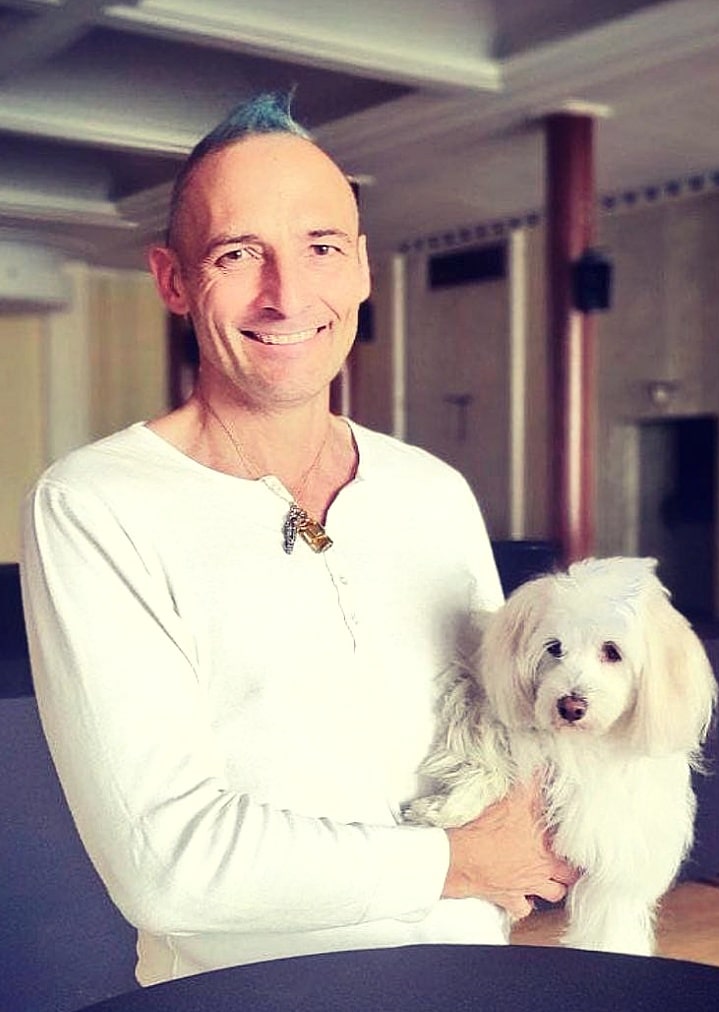PCE public initiative for a greater and bigger art!
We hope that the several clauses of the CODE of ETHICS specifically spelt out for PERFUMERY will help creative perfumers, specialty farmers and inventive molecular chemists enter the era they have been deserving for so long. We envision that this CODE of ETHICS will produce a burst of creativity, honesty and interest in PERFUMERY to reach the level of creativity, management, resources and reporting that music and fashion enjoy.

Perfumery is an art and design activity.
Perfume is a creation of the mind 1. But we are denied this obvious character. The lawmakers have disagreed, but I am intimally convinced.
THIERRY WASSEUR, Master Perfumer to Guerlain explainS in Les Parfumeurs, Harper Collins 2018.
Art is translation. Art is a human-specific activity for translating our experiences, using whichever mediums we can”.
CATHERINE HAILEY-EPSTEIN in Nose Dive, Mindmarrow 2019
Like a poet assembles words to transport the reader, perfumers assemble ingredients to transport the sniffer.
CHRISTOPHE LAUDAMIEL, MASTER PERFUMER and SCENT SCULPTOR, 2022
Perfumery, like any art, is a mean of communicating a message or inducing an emotion that goes beyond the stimulus of the different units used (the ingredients). Like any artist, the perfumer uses different sensibilities, know-how and clever techniques, predictable or unpredictable to achieve this mission.”
A perfume formula freezes a magic, an emotion, a portrait or a landscape, like a photograph or a painting.
It deserves respect and legal protection.
A sheet music is an accepted record of an artwork. Yet it is much more like a recipe and an instruction manual, much more robotic and mathematical than a perfume formula.
A print-out or a screen picture is an accepted record of an artwork, that a device blindly and automatically follows to regenerate the art.
The artistry of Perfumery can be split, like any other artistic discipline into i) “true” artistic activities and creations, ii) design activities with a specific technical purposes or within a large corporation with many more imperatives, or iii) simply as artisan-produced as a workmanship feat with certain items in the public domain.
It remains an art and design activity and as such, deserves respect, protection and financial return to the creators.
It deserves quality, personal and trustworthy communication with the public.
Knowing the individual behind the flacon …. talking about the “nose”, no pun intended, really adds a certain humanity… Perfume remains a platform or a terrain of exchange [between the sniffer and the creator].
François Demachy says, in BOOK Les Parfumeurs, interviewed by Christian Dumahis-Lvowski.
We often hear the lack of credibility from which perfumery suffers publicly.
About content, originality and loyalty of formulae.
Fundamental concerns which are the results from poor intellectual protection, poor academic education, poor public communication and poor ethics of an industry that maintains itself on what would be nowadays in other industries, scandalous practices.
Perfumery is directed since the 1940’s-50’s in majority by players that are not olfactory experts. They include i) fashion and cosmetic brands, in other words visual experts, hence over-the-top bottles ii) music celebrities, in other words, auditory experts not nose experts iii) cleaning brands in other words touch and visual experts such as shampoo, acné or nail polish conglomerates with no perfumers inside, no real fragrance R&D nor scholarships and iv) middle-men and middle-women, brokers, packagers or dispatchers with margins long gone in other industries (listen to a short summary by Daymond G. John, Fubu CEO during Shark Tank Feb 3, 2012 episode if you are not convinced).
It is not in the passionate, financial or expert interest of these non-olfactory players to defend an art that they use for merchandising. They source the art as cheap as possible by buying it by the lb/kg, refuse to legally call it art, copy often in plain daylight the success of the neighbor and resell it as expensive as possible in bling-bling packaging with misleading statements unchecked for 500 years.
In fact, celebrities would never sign for themselves in their own disciplines such as fashion, music, acting or sport the type of contract that they sign for their perfumes. They would never accept to be handled by others the way they handle perfumers.
Christophe Laudamiel summarizes further, 2021
Celebrities would not accept plagiarism, they would not –not receive– royalties for life and 70 years after their death, they would not use the dreamy reputation of certain countries and plants without allowing a fair and proven participation of the local players.
They would not lose the control and credit of their art like chicken in a chicken farm or like music composers parked on Tin Pan Alley in 1920’s.
In fact, the total control away from the authors is legally forbidden for other arts in countries like France, even in “works-for-hire”.
Celebrities and fashion designers would not exploit the near total ignorance of the public to sell nylon under the name and the price of cashmere.
They would not dare hide a second-class short piano under a lid layered with shiny fake crystals and sell the music as a grand piano Carnegie Hall- or Berlin Philarmonic-style recording.
They are, themselves and their public, at kindergarten level to hear or sniff the manipulation and have no reference or neutral organization to consult.
The journalists and fact-checkers are often too superficial. Because perfumery and olfactory art are not taught in their ethical classes at journalism schools, they let their guards down.
They are not suspicious about self-declared statements, do not request ethical disclosures and financial connections, or they hit a wall. We all know how deep all-around secrecy ends up stinking.
They elementarily fact-check by word of mouth or from popular search engines: out of first 15 pictures of “bergamot” in Google, only one, the twelfth one, is an actual bergamot. They just about never check by requiring to see the formula, the factory, the actual perfume composers or the peer-non-reviewed science.
Or, perhaps, because they would like to make sure they are invited again to the next [insert famous brand] launch with a sponsored trip out of New York or Paris to Greece, Egypt, or India, to smell jasmine or violet leaves.
Fragrance events and invitations at the middle management’s and reviewers’ level are lavish compared to the movie industry.
After the trip, and hoping for the next one, they do not verify whether the natural ingredients are contained significantly in the fragrance.
“Smaller writers on guest lists” are a little biased too, to make sure they are not shunted from the next George V or Waldorf-Astoria Hotel cocktail complete with free over-the-top give-aways by the flashy brand.
Not exactly art critique style.
Not exactly reporter-with-integrity style.
As reference, professional photographers sent by reputable news agencies and newspapers (not fashion magazines) are not allowed to receive, even a small, scented candle, from the subject they were asked to photograph for an editorial.
The public has been kept in ignorance of all things smelly since the beginning of time: by priests and sorcerers, by charlatans, alchemists and by the perfumers and perfumists.
When perfumers desire educating the public effectively, most brands and perfumists and all department stores do not commit.
We hope that the several clauses of the CODE of ETHICS specifically spelt out for PERFUMERY will help creative perfumers, specialty farmers and inventive molecular chemists enter the era they have been deserving for so long.
We envision that this CODE of ETHICS will produce a burst of creativity, honesty and interest in PERFUMERY to reach the level of creativity, management, resources and reporting that music and fashion enjoy.
The added credibility, transparency and rewards will encourage outside investors to invest in PERFUMERY as much as they do in computer science, product design, paintings and fashion.
We believe that a better informed public and educated celebrities bring better bigger art!
We, All the Pledgers: Perfume Composers, Perfume Designers, Writers, Brand Owners, Store Owners – Worldwide, 2022
Kind salutations,

